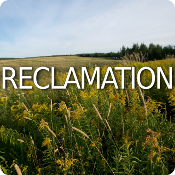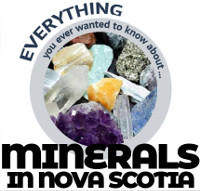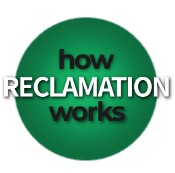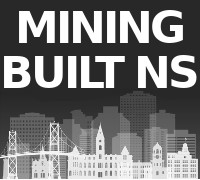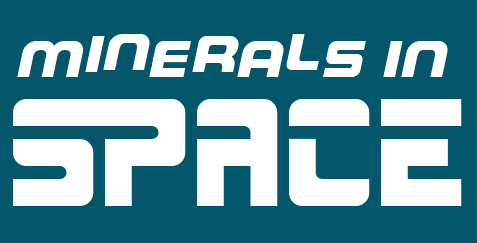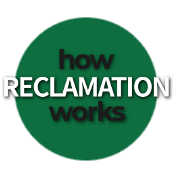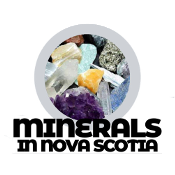- Why Mining Matters
- Jobs
- Safety
- Environment & Operations
- FAQ
- Links
- Fun Stuff
You are here

Thomas J. Brown
BESCO’s Pension
Dan McIsaac and Jim Taylor
Tius Tutty
Wilson Beaton
Aerotech Connector
Henry Swift
1885 Vale Tour
Douglas Slope Explosion
John Angus MacNeil and WWI
Florence Colliery
Joseph Walton
James Lennon
James Hamilton
1918 Allan Mine Disaster
Robert Boutilier’s Luck
Springhill’s John Anderson
Plight of Youth in 1931
Miners’ Wives Praised
Dominion No. 1B in 1931
Allan Shaft, 1931
Private Maceachern
Husseys Prospectus
William Routledge
Swell Factor in Reclamation
Gowrie Mine
River Hebert
Joggins 1904 Fire
Port Hood 1911 Flood
Lamp Cabin Memorial Park
Drummond 1873 Disaster
1872 Accidents
Springhill’s Novaco Mine
1860's Accident
New Glasgow's Linacy Mine
1913 Drummond Fires
1908 Princess Fire
Albion Mines 1913 Fire
DOSCO Miner
Cape Breton's TNT
The McCormick and Turner families
Payday Drunk
John Croak’s Victoria Cross
Atlantic Slag Company
Sydney Cement Company
1914 Coal Mine Cost
Dominion No 2
Canary in a Coal Mine
Draegermen
James Dinn
Pit Ponies
Henry Wadsworth Longfellow
1877 Accidents
Allan Shaft 1912
William Fleming
The Story of Peat
T. G. MacKenzie
Trenton Steel
1930 Stats
MacGregor Mine Explosion
MacGregor Flood
Torbanite Products Limited
Abraham Gesner and Kerosene
1860 Prince of Wales Visit
Dominion No 5
The Royal William and Stellarton Coal
Tom Pit
Terminal City
1875 Accidents
Cannons in Coal Mines
Princess Mine Explosion
Dominion No. 26
A Tale of Two Mines
Franklin Colliery
Robert J. Grant
Springhill No. 1
Mother Coo
Submarine Mines
Barrachois Mine
Fundy Coal Seam
Dominion #14
Dominion #12
Dominion No 4
Child Labour
Joggins Colliery
Safety
Bootleggers
Richmond County
Mabou Mines
Stellar Coal
English Slope
Maccan/Jubilee
The Foster Pit Fire and the Poop Solution
Thomas Edison and the Chignecto coal mine
Henry Whitney and the Dominion Coal Company
Foord Pit
Hiawatha Coal Mine
Coalburn
Springhill Disasters
St. Rose-Chimney Coalfield
Stellarton, Dorrington Softball Complex
How Does Coal Form?
Drummond Coal Mine
Sydney Coalfield and the Princess Mine
Port Morien, 1720
Port Hood
General Mining Association
Thorburn
WWII and Nova Scotia Coal
Nova Scotia's First Railway
Samuel Cunard
Stellarton’s Mining Connections
Sydney Mines
Point Aconi
Victoria Mines
Sullivan Creek
New Campbellton
Inverness and Cabot Links
The Ghost Town of Broughton
Tobin Road, Sydney Mines
Flint Island Coal Mine?!
What does Colliery mean?
Cottam Settlement
Allan Mine
Lamp Cabin Memorial Park
Many of Nova Scotia’s parks contain former mines and quarries, including Springhill’s Lamp Cabin Memorial Park.
The park honours the Cumberland County town’s coal mining heritage and is on the property formerly occupied by the lamp cabin, where miners picked up their lamps before going underground. The lamp cabin building was demolished in 2020 after falling into disrepair.
The park also honours the women of Springhill, who too-often had to hold families together and carry on after disasters in the mines killed husbands, fathers, sons and brothers.
Lamp Cabin Memorial Park includes interpretive signage detailing the history of the site and mining in Springhill, a sign in tribute to the women of Springhill, a brick planter, a walking trail, benches and accessible picnic tables.
Coal mining started in Springhill as early as 1834 when a local man sold coal to blacksmiths. Some small-scale mining took place starting in the late 1850s after the General Mining Association lost its 30-year monopoly on most Nova Scotia minerals and independent operators were able to open mines. Mining in Springhill did not flourish, however, until after 1872, with the arrival of the Intercolonial and Springhill-to-Parrsboro railways, which facilitated the transport of coal to markets by both land and sea.
Springhill went on to have an extraordinary history of coal mining over the next century. The coal mines were a mainstay of the town’s economy and generations of families were supported by them. However, several of the worst disasters in Nova Scotia's mining history also took place in Springhill (https://notyourgrandfathersmining.ca/springhill).
Nova Scotia’s mining and quarrying industry has reduced its injury rate by 90% since the Westray inquiry report was released in 1997, making mining one of the safer industries in the province today. We believe the most important thing to come out of a mine is the miner, and our modern safety record reflects this.
Reclamation - preparing mines and quarries to contribute to communities after extraction is done - is also a key part of the industry today. Before starting to mine, Nova Scotia mining companies must get government approval of reclamation plans and post reclamation bonds (money in escrow, basically) that ensure funds are available to properly take care of sites. This ensures modern mines and quarries are reclaimed at no cost to taxpayers and that the environment is properly taken care of.


